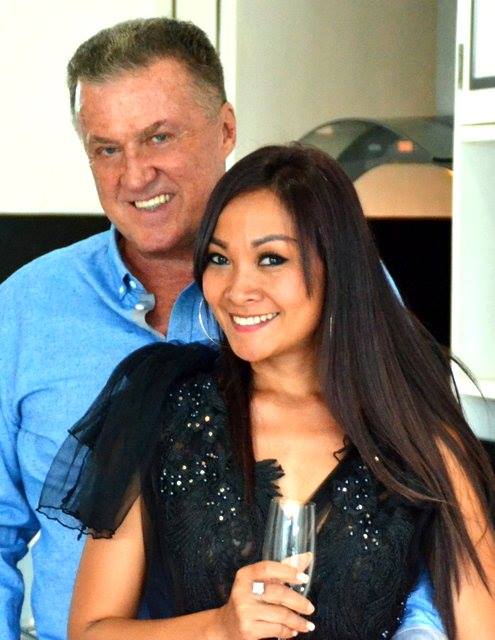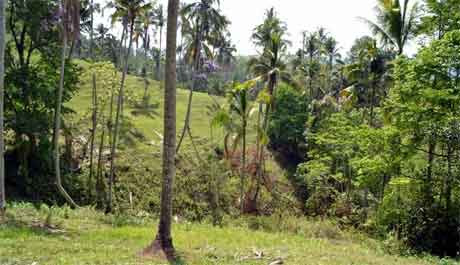
About 126,000 Baby Boomers will retire this year. Simon Letch
Duncan HughesReporter
Nov 26, 2021 – 6.01am
Traditional retirement planning is being upturned by rising inflation, longer lives and growing pressure on Baby Boomers to fund the so-called Bank of Mum and Dad, which has hit a record $38 billion worth of loans, making it the nation’s ninth-largest mortgage lender.
“Old pension structures are all but extinct,” says Paul Ashworth, managing partner of wealth advisory firm Cameron Harrison, about asset-rich retirees.
“Superannuation, investments and asset price inflation over the last 20 years has shifted retirement savings to funding both retirement and being a wealth accumulator to help children and pass on to the next generation,” Ashworth says.
New investment products are being launched that help property owners tap into the equity of their homes for loans to adult children, which in October were averaging a near-record of $97,600, according to Digital Finance Analytics, an independent analyst.
The equity release loans have traditionally only been to supplement retirement income.
Inflationary pressures
Low-interest rates and inflationary pressure are also accelerating many retirees’ transition from fixed-income based capital stable products into higher-risk conservative stable strategies, according to SuperRatings, which monitors super fund performance.
“It’s a challenging world for many retirees because of low interest rates and rising inflation,” Kirby Rappell, executive director of SuperRatings, says.
“These challenges are growing as it gets harder and harder to eke out returns from traditional defensive asset classes, which have lower investment risk but also the potential for lower returns over the longer term.”
But for others the combined impact of asset inflation and strong investment returns have created nest eggs that are accumulating more wealth than they need, according to Roger Wilkins, professor of economics at University of Melbourne.
Advertisement
This was also a key finding of the federal government’s Retirement Income Review last year, chaired by Treasury official Mike Callaghan.

Roger Wilkins, of the University of Melbourne, says some retirees are accumulating more wealth than they need.
Traditionally, the financial services industry has worried that many retirees will outlive their savings, drumming up solutions to this so-called longevity risk. But instead, the review found many retirees were not maximising their existing savings in retirement, leading some to experience a lower standard of living than they ought to.
For retirees such as John Evans, who has been fully retired for about seven years, investment returns of more than 10 per cent during the past decade and rising property values have transformed the traditional role of super.
“I’ll try and keep the super fund together, so there’s a lot of money left for the next generation,” Evans says.
Evans funds his retirement through residential investment properties, an SMSF investing in shares and enough cash to prevent having to sell shares if there is a big market correction.
“We have been able to help our children buy their homes and pay school fees,” Mr Evans says.
Parental guidance
A key focus of the wealth transfer is helping family members into the housing market – in which prices have surged more than 20 per cent in the past year, the fastest growth in more than three decades.
Specialist products are being launched to help Baby Boomer home-owners access the equity in their principal residences to help their children into the property market, rather than top up their own retirement accounts.
Advertisement
This is contributing to the Bank of Mum and Dad evolving from a part-player to a powerhouse accounting for loans to about 57 per cent of first-time borrowers, which is a slight decrease because many first-time buyers are being squeezed out of the market by investors and a sharp increase in prices.
The number of Baby Boomers (people born between 1946 and 1964) retiring this year is around 126,000, rising to a peak of 137,000 in 2026, before slowing to around 100,000 in 2030, according to government statistics.
Life expectancy is expected to rise to 91 for males and 93 for females by 2050, which means retirement savings should be expected to stretch until around 90 years, according to analysis by Brendan Ryan, principal of Later Life Advice, a financial adviser specialising in retirement issues.
This is resulting in more people working past the traditional retirement age and bequests often being delayed well past the time when retirees’ children face their biggest financial needs, such as house deposits, repaying mortgages or education expenses.
Reverse mortgage specialists, such as Household Capital, are offering products enabling parents to use the equity in their homes to fund their children’s financial needs, such as home deposits, payments, or school fees.
“It is a growing trend as the requirements become known and understood,” Joshua Funder, chief executive of Household Capital, says.

Retired financial planner Michael Phillips has helped his adult children buy property. Peter Braig
Homesafe Solutions offers Homesafe Wealth Release, which enables lump sum payment in exchange for selling Homesafe a percentage of the sales proceeds when the home is eventually sold.
New entrants are offering income-producing products involving the sale of a portion of the family home.
Advertisement
Homeowners should seek independent financial advice to ensure they understand how the products work, how much they cost and whether they are in their best interests.
Paul Moran, principal of Moran Partners Financial Planning, warns: “Many parents make promises without realising the consequences of what they can afford to give away.”
Potential issues for parents providing equity range from encumbrances on the property title that could affect their capacity to raise a personal loan, impact on CentreLink payments and problems if the child cannot pay their share of the mortgage.
“You need kids you can trust,” Moran adds.
An alternative strategy is for parents to use cash from personal savings accounts, which are paying less than 1 per cent, for loans that charge their child-borrower half the commercial lending rate, say 2 per cent.
“That way both sides win,” he adds. “The parents get a higher savings rate and borrower-children a lower lending rate.”
Pressure on SMSF income
Inflation is beginning to squeeze returns on SMSFs that include residential property and rely on rental payments for income.
“Tenants are very sensitive to even small changes and the risk is they will vacate the property for a more attractive offer,” Alex Jamieson, founder of AJ Financial Planning, says.
Vacancy rates fell in Sydney and Melbourne’s central business districts to 7.5 per cent and 8 per cent respectively during October, which is high compared to historical averages, according to SQM Research.
Advertisement
An SMSF member aged between 65 and 74 must draw down a minimum of 2.5 per cent of their account balance this financial year. It increases to 5 per cent next financial year.
“This puts more pressure on members to draw down on more liquid assets like shares or cash. That could create problems if property is the lion’s share of the SMSF,” Jamieson says.
Increasing equity exposure
Low interest rates and rising inflation is resulting in more super investors switching from capital stable funds, which have between 20 and 40 per cent invested in equities, to conservative balanced, where the allocation to growth assets is around 41 to 59 per cent, according to analysis by SuperRatings.
Capital stable funds typically have a higher exposure to fixed income securities, such as government and corporate bonds, capital notes, debentures and income securities.
Rising interest rates have a negative impact on bond prices.
Capital stable funds are averaging returns of around 8 per cent. Top performer Energy Super is returning 13 per cent for the year.
Average returns on conservative balanced funds for the year are around 14 per cent, with the top performer, Sunsuper for Life, topping 17 per cent.
Top-performing cash products offered by super funds are averaging about 1.6 per cent with the majority offering less than 1 per cent, or less than half the rate of inflation.
Inflation and low interest rates have self-funded retirees such as Michael Phillips remixing his traditional portfolios equally between equities, property and cash.
Advertisement
Phillips, who retired two years ago and lives in Northwood on Sydney’s north shore, has reduced cash and increased diversified investments into private equity to boost cash flows.
“The best part of running my own super fund is rule 101, not losing money,” Phillips says.
“I’ve always had the attitude of ‘buy well and hold well’,” he adds.

Related
Lockdown inheritance promises creating legal rows
The father of two daughters and former financial planner has also been a Bank of Mum and Dad.
“Traditional forms of investing have gone out the window because of high inflation and low interest rates,” he says.
“In the past, portfolio theory was one-third cash, one-third equities and one-third property. These days you have got nowhere else to go but the share market, private equity and infrastructure.”
Golden oldies
Generous tax concessions, rising life expectancy, improving health and staff shortages are encouraging older workers to stay in the workforce.
Older workers aged in their sixties have been the fastest-growing segment of the workforce in recent years, even though it is not clear what impact COVID-19 has had during the past two years.
Mark Chapman, tax director at H&R Block, says those who pass the age pension threshold of 66 years and six months can earn up to $32,279 a year without paying income tax in addition to tax-free super.
Couples can jointly earn $57,948 – on top of super – without having to pay tax.
Chapman says: “You can earn up to $50,119 (if you’re single) or $83,580 (for couples) in non-super income and still get some benefit, though the benefit is less since it is phased out the more you earn and disappears altogether above those income levels.
“This makes it very advantageous to continue working, at least part-time,” he says.













No comments:
Post a Comment